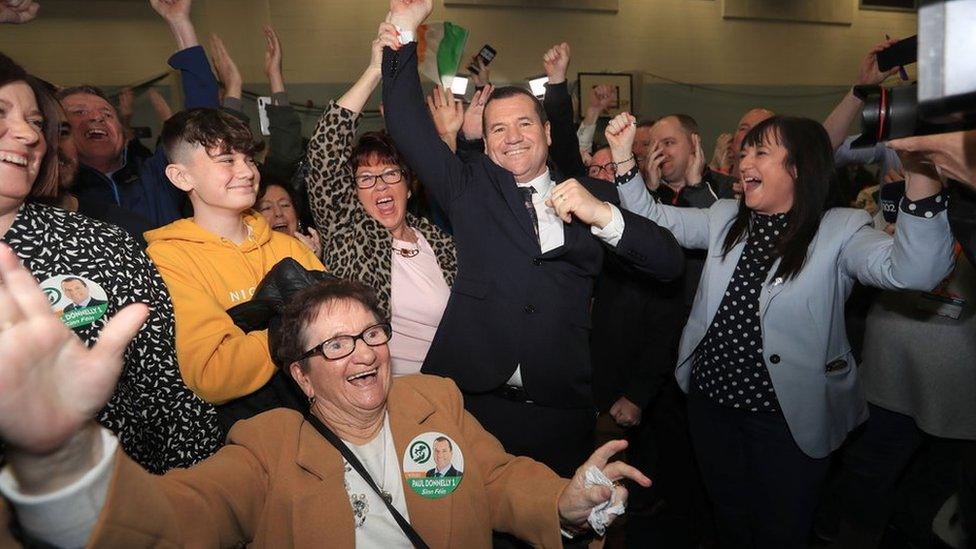Irish general election: Sinn Féin bid to form new government
- Published
- comments
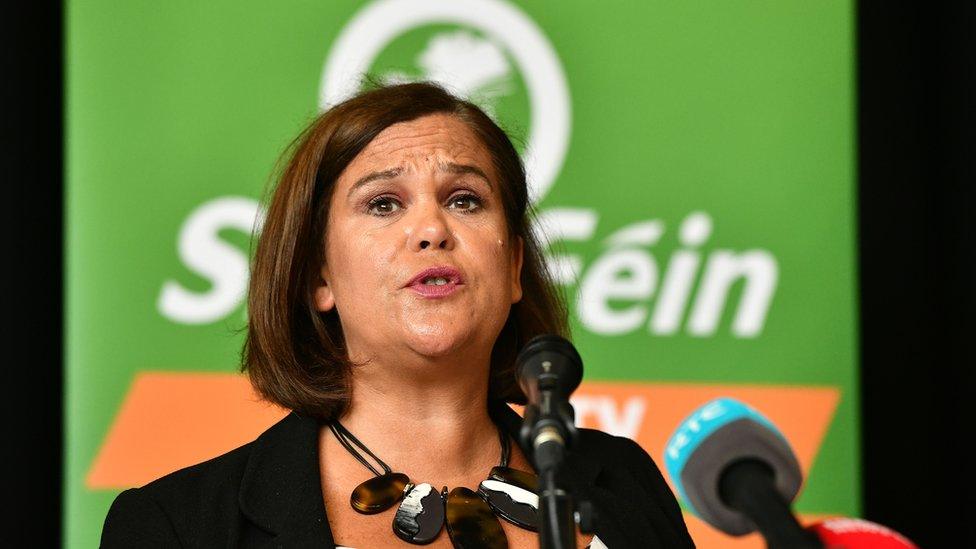
Mary Lou McDonald says she "may well be the next taoiseach"
The Sinn Féin President, Mary Lou McDonald, has held talks with the Green Party and People Before Profit about forming a new Irish government.
Sinn Féin topped the first preference poll in Saturday's Irish general election, but its 37 seats is one fewer than Fianna Fáil.
No single party secured enough seats to govern alone.
The party has appointed the Donegal TD Pearse Doherty to lead its negotiating team for the coalition talks.
Sinn Féin said Mr Doherty would initially seek meetings with some of the smaller left-wing parties that won seats in the Dáil Éireann (Irish parliament).
Speaking after meeting the Green Party leader Eamon Ryan on Wednesday, Mrs McDonald said: "I have made it clear since before the election - and after - that I will speak to all parties in the interests of forming a government; starting with those with a mandate for change.
"We have agreed to begin exchanging ideas, and we will talk and meet again."
She later met representatives from People Before Profit and said "we have agreed to stay in touch over the coming days".
'Grown-up politics'
On Wednesday, Brendan Howlin announced he would step down as Labour Party leader, once the process to elect a successor had been completed.
He said he had asked the party's general secretary to begin making the arrangements for the nomination process and the membership election.
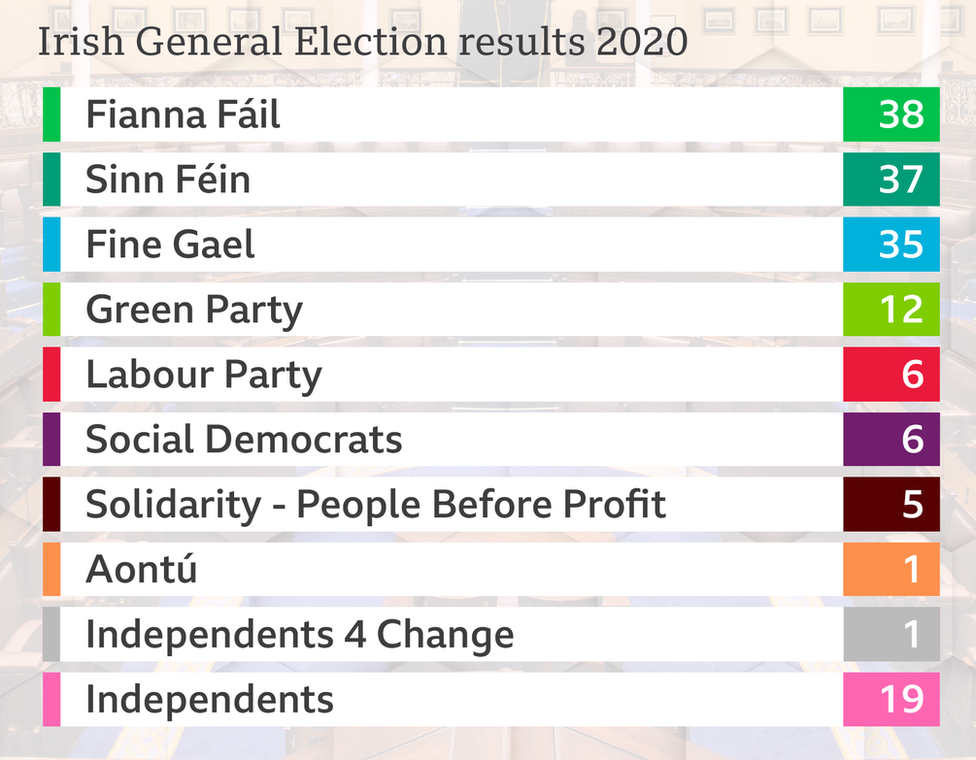

It is expected Sinn Féin will meet the Social Democrats on Thursday.
On Monday, Mrs McDonald said she "may well be the next taoiseach (Irish prime minister)".
Speaking on Irish broadcaster RTÉ on Tuesday evening, Pearse Doherty said the conversation with "like-minded parties" - the Labour Party, Green Party, Social Democrats and Solidarity People Before Profit - had already begun and would continue on Wednesday.
"We gave a commitment we would talk to everybody because this is grown-up politics," he said.
"We need to sit down, we need to find out if we can find common ground.
"This is about dealing with crises we have in peoples' pockets, in housing and health."
'We were defeated'
However, even if Sinn Féin secure the support of the Green Party, Labour Party, Social Democrats and Solidarity People Before Profit, it would only amount to 66 seats - still short of the majority required to form a government.
If the party then had to seek support from Independent Dáil members, all with competing demands, it would further complicate the task of forming a stable government.
During the election campaign, Fianna Fáil and the incumbent ruling party, Fine Gael, both said they would not go into coalition with Sinn Féin.
They said this was due to policy differences and Sinn Féin's past links with the IRA.
On Sunday, Fianna Fáil leader Micheál Martin did not rule out working with Sinn Féin but said "significant incompatibilities" still existed.
However, speaking to RTÉ on Tuesday evening, Fianna Fáil TD Jim O'Callaghan said his party's position was clear.
"The position of Fianna Fáil remains the position as it was before the general election," he said.
"We told people we wouldn't go with Sinn Féin into government and we aren't going to do that."
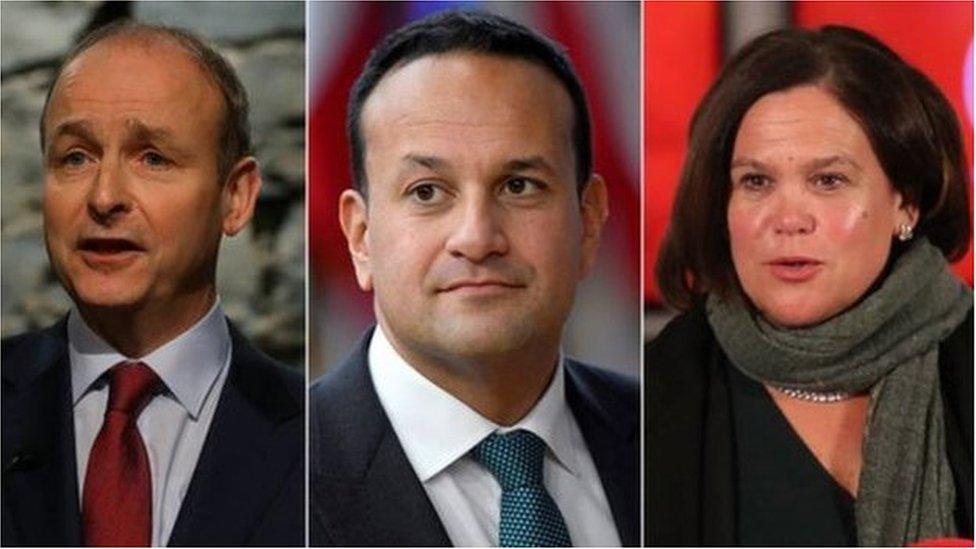
The three biggest parties are led by Micheál Martin (Fianna Fáil), Leo Varadkar (Fine Gael) and Mary Lou McDonald (Sinn Féin)
Meanwhile, Taoiseach (Irish Prime Minister) Leo Varadkar has said the onus is on Sinn Féin to build a coalition and his party, Fine Gael, was ready for opposition.
"We were defeated in this election, there is no point in trying to dress that up in any way," he told RTÉ.
"It may have been a tight finish, but we were defeated so that means that people are saying to us that Fine Gael should go into opposition and we are absolutely willing to do that."
Sinn Féin won 24.5% of all first preference votes in the proportional representation (PR) election, compared to 22.2% for Fianna Fáil and 20.9% for Fine Gael.
Fine Gael also came third place in terms of seats and now has 35 members in the Dáil.
However, no party came close to the 80 seats needed to hold a majority in the 160-seat parliament.
Talks to form a new government could take weeks or months.
In 2016, it took 70 days for the parties to agree on who would rule the country.
Those negotiations ended in an confidence-and-supply agreement, which produced a Fine Gael-led government, propped up by Fianna Fáil votes on key policy areas.
- Published11 February 2020
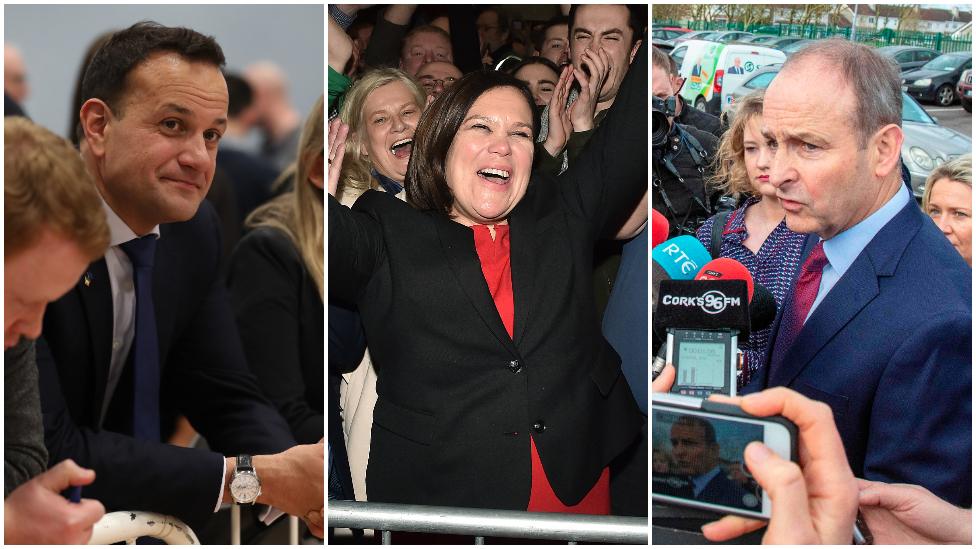
- Published11 February 2020
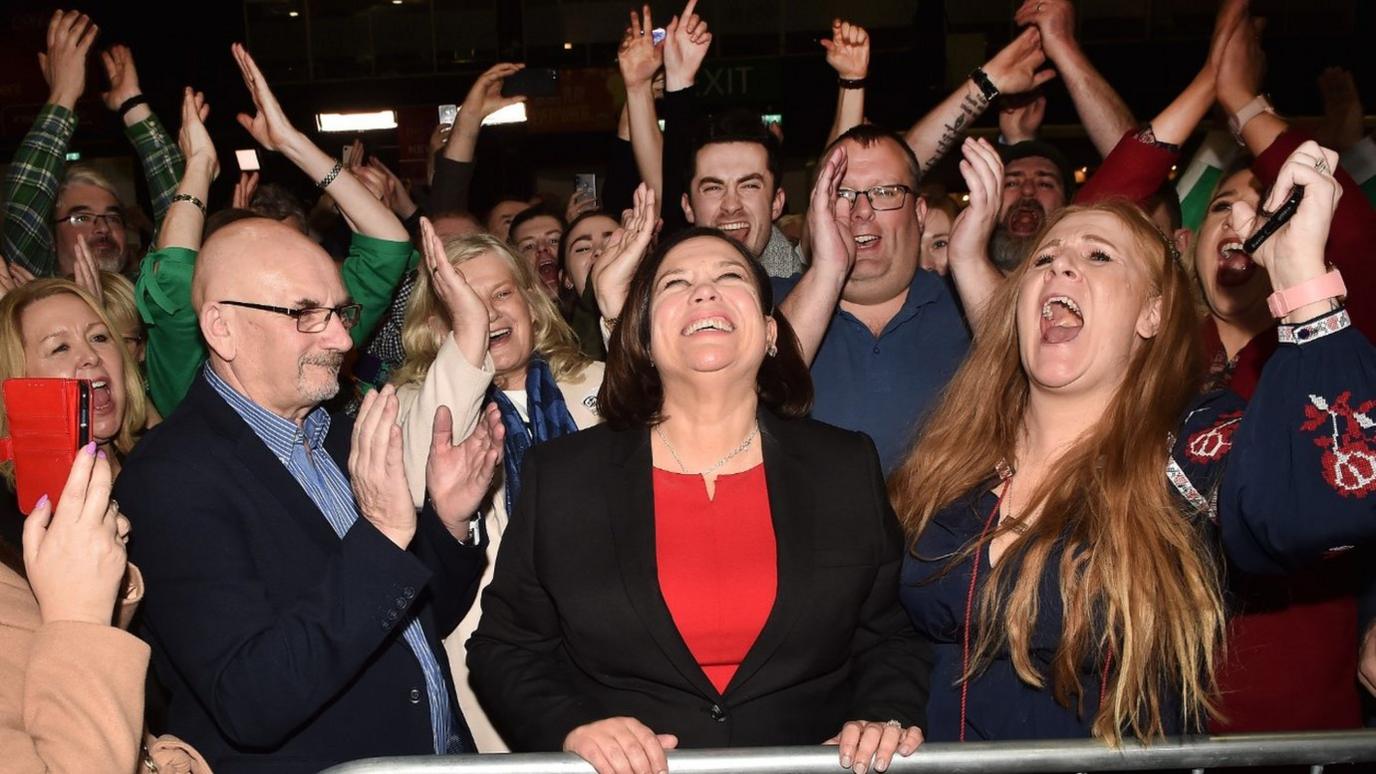
- Published11 February 2020
